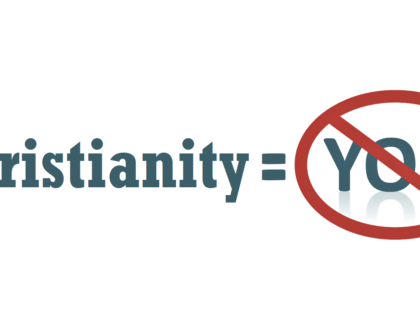Devoted to the Breaking of Bread

by Pastor Gene
Today’s reading is from James Montgomery Boice with questions I’ve developed from the text. Enjoy!
“The third characteristic of the early Christian church was worship. There was “the breaking of bread” and “prayer.” “Breaking of bread” stands for the communion service, and prayer, although it is something we can do individually and at different times, is in this passage actually the formal exercise of prayer in the assembly.
In the Greek text the definite article occurs before the word “prayer.” The text actually says … they devoted themselves “to the breaking of bread and to the prayers.” Obviously, that is a reference to something formal—to worship in which the people got together and praised God.
There is also a reference to formal worship in Acts 2:46: “Every day they continued to meet together in the temple courts.” “Temple courts” probably refers to the courtyard of the Gentiles, which was a very large place. On feast days, when everyone packed into it, it could accommodate perhaps two hundred thousand people. It was the only place in Jerusalem where you could get such a large crowd together.
Indeed, it may have been here that the large meeting on the day of Pentecost took place, and if it was, then it would have been natural that on set occasions the early Christians returned to the place so they could all enjoy the worship of God as they broke bread in the communion service and offered up prayers.
Then, not only did the Christians worship in a formal setting, perhaps in the large courtyard of the Gentiles, but they worshiped informally as well, as the very next phrase says: “They broke bread in their homes” (Acts 2:46). That is a deliberate repetition. Acts 2:42 says, “They devoted themselves… to the breaking of bread.” Then Acts 2:46 says, “They broke bread in their homes.” It means that they did both. They had formal worship and they had informal worship. And the informal worship included, and perhaps was largely centered on, the communion service.
How about their music? What did they sing when they got together in the temple courts? They must have sung the psalms, participating in the regular liturgical patterns of Jewish worship. Our equivalent might be the many hymns of the Christian past. What did they sing when they met together in their homes? In that setting their music was probably far less formal, perhaps the equivalent of our so-called praise music or choruses. The psalms were the best worship music. They were based on an inspired text, after all. But that did not exclude the use of other music in its place.
Should Christian worship be formal? Or should it be informal? The answer is certainly that Christian worship should be both. Why should we have to choose between the two? There are different kinds of people, different settings, and different occasions on which we worship. Why should there not be worship appropriate to each occasion?”
Boice, J. M., Acts: An Expositional Commentary (Grand Rapids, MI: Baker Books, 1997) pp. 55–62.
To consider …
- Think about this for a moment. How does the worship experience of the early church described in Acts 2 differ from that of the modern church?
- Many churches have split over the “worship music” debate.
Should it be hymns or modern music?
Old favorites or contemporary choruses?
“How Great Thou Art” or “Good, Good Father?”
What do you think of Dr. Boice’s ideas on the subject?
- What about the ‘formal’ vs. ‘informal’ worship debate?
Some worship services are VERY formal; others are VERY informal.
Is it possible for us to be so informal that we become irreverent?
Is it possible for us to be so formal that we choke the Spirit, so to speak?
What do you think of Dr. Boice’s thoughts on the subject.
What are yours?
- Does the idea of gathering together with your brothers and sisters to worship God excite you?
Is ‘excite’ too strong a word? The wrong word? What’s the right one?
Do you think that your desire for corporate worship (or the lack of it) gives you some insight into your spiritual health?
Recommended Posts

The Long Road Back to Bethel
July 25, 2021

It’s Not About You. Really, It’s Not.
November 05, 2018

Shipwrecked!
August 07, 2018
Comments
Comments are closed.

Good morning!! I love the question about worship music. I think the bottom line is this – does the song turn your eyes heart and mind to the Creator? Does it make you contemplate the words and your walk with Him? I know there are those who prefer one style over another within the worship but I think no matter what it is if the heart is not right NONE OF IT IS ACCEPTABLE! The worship of a God flies from a heart and mind set on Jesus. I know when I am singing a song it sells up within the hope the promises the beauty of God is so real you cannot help but smile
Good point Joy! Let’s also be cateful when we label hymns as formal music. A lot of the hymns that we know were written to the music of bar songs. So perspective is in order.
The last paragraph of Boices’s quote got me thinking if the “worship in their homes” was a way to include the marginalized, the sick or the unclean into the worship service. As Boice said there are “different kinds of people” and my guess is within a crowd that size some would take issue if they saw a tax collector, gentile or Samaritan standing close by.
Among the crowd were also those who sought out the lost souls and were motivated to take the gospel out to the lepers and crippled within homes and places away from the temple. In such settings the worship would be less formal but possibly more meaningful.
When I visit the sick and share the Lord’s Table with them in their home or hospital bed, it is equally as sacred a time as when I do so with the entire church. So I agree, both places of worship are of great value and necessary to practice continually.
I do not consider myself as being a good evaluator of music and I have had little or no issues in worshiping the Lord. I believe as Kerin had stated, worship is only acceptable when there is no sin and the heart is pure. I do admit that our worship team is doing an outstanding job and has raised the bar in their selection of songs. I presume there will be debates about the types of worship, music, etc. as there are with choosing colors of rugs, paint and what have you. Worship, I am convinced comes down to what Jesus told the woman at the well in John 4:23, ” but the hour is coming and is now here, when the true worshipers will worship the Father in spirit and truth, for the Father is seeking such people to worship him. Vs. 24, God is spirit, and those who worship him MUST worship in spirit and truth.”
For me worship is simple. It is to be done “in Spirit and in Truth” We know that worship equates to worthy. So for me the only one who is Worthy of worship is the Lord God and I prefer to worship Him in Spirit and in Truth. The style or type of worship music is secondary, though do prefer songs or hymns I know. Thank you everyone for praying for me, I am home from the hospital and resting. Feeling much better
Thankful for God’s hand of protection on you Bob! Glad you are home….continued prayers for complete healing!
I was also thinking of Jn. 4:23,Pastor Dave. I’m in agreement w/the others that if our hearts r centered on the One w/whom THE WORSHIP IS OFFERED, then that’s the KEY!’we sometimes sacrifice it(sacrifice of praise) when our ❤️are heavy and we might not feel like it. But what’s central, here, is ISN’T HE WORTHY TO BE WORSHIPED WHEN MY SKIES R GRAY AS MUCH AS WHEN THEY’RE BLUE & ALL IS WELL? My reply- IT IS WELL WITH MY SOUL!!